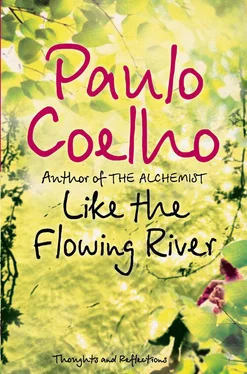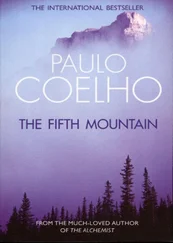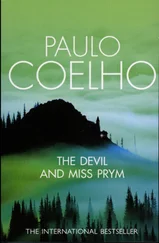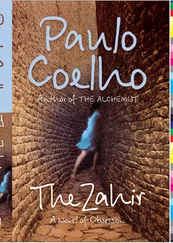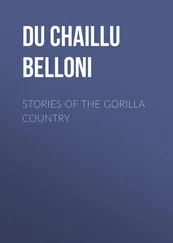Like the Flowing River: Thoughts and Reflections
Paulo Coelho
Translated from the Portuguese by Margaret Jull Costa

Be like the flowing river,
Silent in the night.
Be not afraid of the dark.
If there are stars in the sky, reflect them back.
If there are clouds in the sky,
Remember, clouds, like the river, are water,
So, gladly reflect them too,
In your own tranquil depths.
Manuel Bandeira
Cover Page
Title Page Like the Flowing River: Thoughts and Reflections Paulo Coelho Translated from the Portuguese by Margaret Jull Costa
Epigraph Be like the flowing river, Silent in the night. Be not afraid of the dark. If there are stars in the sky, reflect them back. If there are clouds in the sky, Remember, clouds, like the river, are water, So, gladly reflect them too, In your own tranquil depths. Manuel Bandeira
Preface
A Day at the Mill
Prepared for Battle, But With a Few Doubts
The Way of the Bow
The Story of the Pencil
How to Climb Mountains
The Importance of a Degree
In a Bar in Tokyo
The Importance of Looking
Genghis Khan and His Falcon
Looking at Other People’s Gardens
Pandora’s Box
How One Thing Can Contain Everything
The Music Coming from the Chapel
The Devil’s Pool
The Solitary Piece of Coal
The Dead Man Wore Pyjamas
Manuel Is an Important and Necessary Man
Manuel Is a Free Man
Manuel Goes to Paradise
In Melbourne
The Pianist in the Shopping Mall
On My Way to the Chicago Book Fair
Of Poles and Rules
The Piece of Bread That Fell Wrong Side Up
Of Books and Libraries
Prague, 1981
For the Woman Who Is All Women
A Visitor Arrives from Morocco
My Funeral
Restoring the Web
These Are My Friends
How Do We Survive?
Marked Out to Die
The Moment of Dawn
A January Day in 2005
A Man L ying on the Ground
The Missing Brick
Raj Tells Me a Story
The Other Side of the Tower of Babel
Before a Lecture
On Elegance
Nhá Chica of Baependi
Rebuilding the House
The Prayer That I Forgot
Copacabana, Rio de Janeiro
Living Your Own Legend
The Man Who Followed His Dreams
The Importance of the Cat in Meditation
I Can’t Get In
Statutes for the New Millennium
Destroying and Rebuilding
The Warrior and Faith
In Miami Harbour
Acting on Impulse
Transitory Glory
Charity Under Threat
On Witches and Forgiveness
On Rhythm and the Road
Travelling Differently
A Fairy Tale
Brazil’s Greatest Writer
The Meeting That Did Not Take Place
The Smiling Couple (London, 1977)
The Second Chance
The Australian and the Newspaper Ad
The Tears of the Desert
Rome: Isabella Returns from Nepal
The Art of the Sword
In the Blue Mountains
The Taste of Success
The Tea Ceremony
The Cloud and the Sand Dune
Norma and the Good Things
Jordan, the Dead Sea, 21 June 2003
In San Diego Harbour, California
The Art of Withdrawal
In the Midst of War
The Soldier in the Forest
In a Town in Germany
Meeting in the Dentsu Gallery
Reflections on 11 September 2001
God’s Signs
Alone on the Road
The Funny Thing About Human Beings
An Around-the-World Trip After Death
Who Would Like This Twenty-Dollar Bill?
The Two Jewels
Self-Deception
The Art of Trying
The Dangers Besetting the Spiritual Search
My Father-in-law, Christiano Oiticica
Thank You, President Bush
The Intelligent Clerk
The Third Passion
The Catholic and the Muslim
Evil Wants Good to Prevail
The Law of Jante
The Old Lady in Copacabana
Remaining Open to Love
Believing in the Impossible
The Storm Approaches
Some Final Prayers
More about Paulo Coelho
Author Biography: Paulo Coelho
Paulo Coelho The Witch of Portobello
Heron Ryan, 44, journalist
Life is a journey
Feeling inspired?
Also by Paulo Coelho
Copyright
About the Publisher
When I was fifteen, I said to my mother: ‘I’ve discovered my vocation. I want to be a writer.’
‘My dear,’ she replied sadly, ‘your father is an engineer. He’s a logical, reasonable man with a very clear vision of the world. Do you actually know what it means to be a writer?’
‘Being someone who writes books.’
‘Your Uncle Haroldo, who is a doctor, also writes books, and has even published some. If you study engineering, you can always write in your spare time.’
‘No, Mama. I want to be a writer, not an engineer who writes books.’
‘But have you ever met a writer? Have you ever seen a writer?’
‘Never. Only in photographs.’
‘So how can you possibly want to be a writer if you don’t really know what it means?’
In order to answer my mother’s question, I decided to do some research. This is what I learned about what being a writer meant in the early 1960s:
(a) A writer always wears glasses and never combs his hair. Half the time he feels angry about everything and the other half depressed. He spends most of his life in bars, arguing with other dishevelled, bespectacled writers. He says very ‘deep’ things. He always has amazing ideas for the plot of his next novel, and hates the one he has just published.
(b) A writer has a duty and an obligation never to be understood by his own generation; convinced, as he is, that he has been born into an age of mediocrity, he believes that being understood would mean losing his chance of ever being considered a genius. A writer revises and rewrites each sentence many times. The vocabulary of the average man is made up of 3,000 words; a real writer never uses any of these, because there are another 189,000 in the dictionary, and he is not the average man.
(c) Only other writers can understand what a writer is trying to say. Even so, he secretly hates all other writers, because they are always jockeying for the same vacancies left by the history of literature over the centuries. And so the writer and his peers compete for the prize of ‘most complicated book’: the one who wins will be the one who has succeeded in being the most difficult to read.
(d) A writer understands about things with alarming names, like semiotics, epistemology, neoconcretism. When he wants to shock someone, he says things like: ‘Einstein is a fool’, or ‘Tolstoy was the clown of the bourgeoisie.’ Everyone is scandalized, but they nevertheless go and tell other people that the theory of relativity is bunk, and that Tolstoy was a defender of the Russian aristocracy.
(e) When trying to seduce a woman, a writer says: ‘I’m a writer’, and scribbles a poem on a napkin. It always works.
(f) Given his vast culture, a writer can always get work as a literary critic. In that role, he can show his generosity by writing about his friends’ books. Half of any such reviews are made up of quotations from foreign authors and the other half of analyses of sentences, always using expressions such as ‘the epistemological cut’, or ‘an integrated bi-dimensional vision of life’. Anyone reading the review will say: ‘What a cultivated person’, but he won’t buy the book because he’ll be afraid he might not know how to continue reading when the epistemological cut appears.
(g) When invited to say what he is reading at the moment, a writer always mentions a book no one has ever heard of.
Читать дальше
